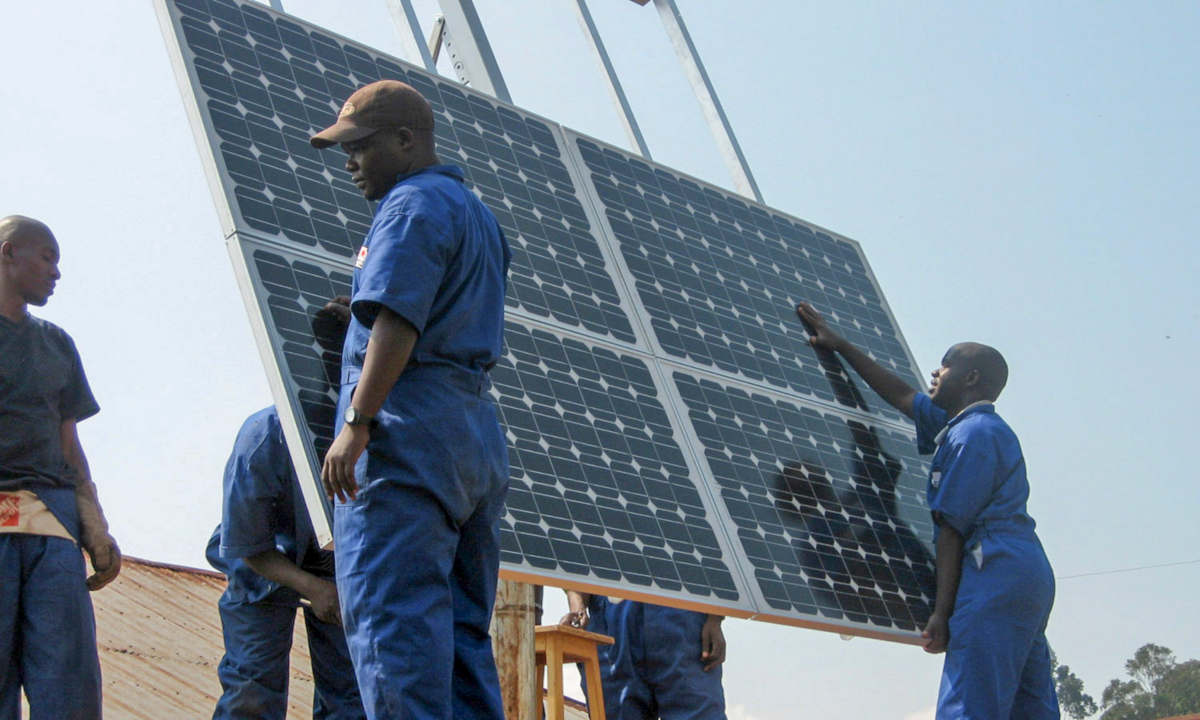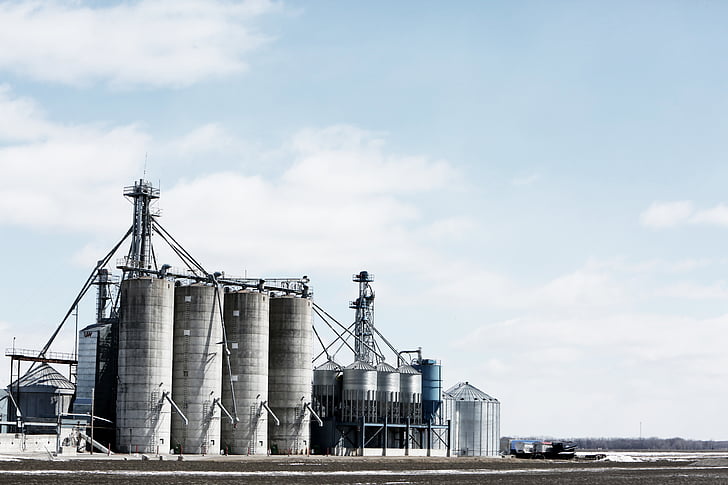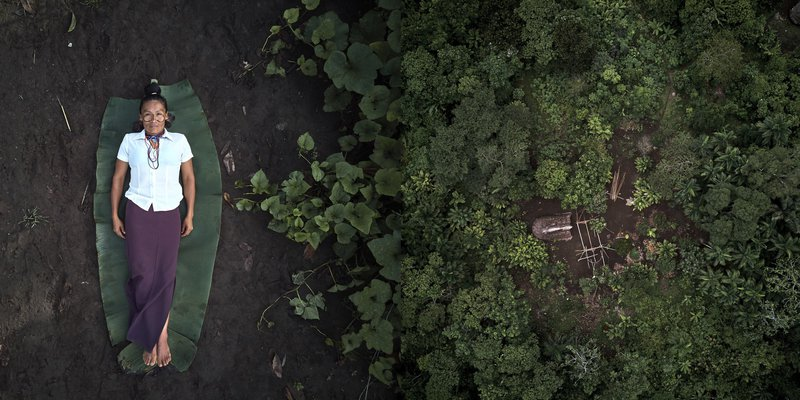As farmers and food systems contend with a growing number of threats and challenges, food demand rises significantly, culminating in a perilous tension that raises the question of resilience. Ines Counot and Angela Salmeron Contreras explore the very nature of agricultural resilience, the hurdles it presents and practical strategies to bolster the well-being of farmers and society in the wake of climate change.
As farmers and food systems contend with a growing number of threats and challenges food demand rises significantly, culminating in a perilous tension that raises the question of resilience.
Certainly, resilience is frequently argued in terms of being either robust enough to withstand shocks or adaptable enough to revert to a pre-shock state. While, undeniably beneficial in the short-term, these outcomes may not be inherently sustainable. Treating food systems as a simple emergency toll in the long run underscore the pressing imperative for systematic transformation.
It is in this context that the Symposium explored the very nature of resilience, not only in the sector’s ability to resist stresses and shocks, but also in seizing vital opportunities to establish a more equitable and sustainable future for agriculture. At the same time, discussions investigated practical interventions to support farmer and societal welfare by enhancing agricultural resilience in the face of climate change.
I) Can resilience be reduced to mere robustness?
The concept of resilience plays a pivotal role as it takes on different shades of meaning depending on one’s perspective. To a farmer, resilience primarily centres around the vitality of soil, with an emphasis on its strength. Conversely, from an anthropologist’s viewpoint, resilience pertains to sustaining livelihoods and safeguarding the most vulnerable communities who frequently struggle with food insecurity. Lastly, from an economist or development economist’s standpoint, resilience encompasses a holistic synergy between economic, planetary, and human health, coupled with the capacity to rebound from the impacts of climate-related shocks.
II) What are the main challenges?
The challenges to enhance resilience in our food systems are multifaceted and require a comprehensive approach to address them. Post-war advancements in genetic performance and the widespread use of chemical pesticides were initially seen as miraculous solutions for agriculture, promising increased crop yields and reducing pest damage. However, these innovations led to unintended consequences. Farmers became overly reliant on these technological breakthroughs, resulting in the abandonment of traditional mixed farming practices for monoculture and specialization. This shift had severe repercussions, including soil degradation and a significant loss of biodiversity. It has become evident that chemistry alone cannot sustain our agricultural systems, necessitating a re-evaluation of more sustainable and holistic farming practices.
One of the core challenges concerns knowledge systems and the rapid pace of adaptation required. Meeting this challenge requires strong support, primarily through scientific knowledge. This involves driving data collection, comparison, and benchmarking to assess farming practices continually. Additionally, evaluating inputs, such as the quantity of fertilizers used, and calculating ecological footprints are critical steps.
Consequently, support through policies in the agricultural sector is crucial. However, it encompasses three main challenges. First, the detrimental impact of subsidies and the current system tends to favour larger, more industrialized farms, leaving small farms at a disadvantage. Second, product demands within the European Union have led regulations to focus on additives rather than health and nutritional content. This has left consumers uncertain about the contents of their food; whereas it is important to consider a return to locally sourced and whole foods. Finally, there’s a pressing need to adapt policies to accommodate tenant farmers who do not own the land but rent it, as they represent a significant portion of agricultural production. Government interventions should be structured to benefit those who are actively cultivating the land, rather than the owners, thereby ensuring a more equitable farming landscape.
Likewise, technological innovation in agriculture holds immense potential for addressing critical challenges, but it also comes with its own set of considerations. For instance, shifting away from monoculture systems is essential to mitigate risks associated with large-scale farming and vulnerability to pathogens. However, government interventions and overregulation in food production can actually impede the adoption of innovative practices. Ultimately, while embracing technology, we must avoid diminishing resilience to a technological process and emphasize the importance of using a multi-disciplinary approach.
III) Examining policies and solutions:
With the intention of creating solutions to the challenges aforementioned, the Symposium shed light on practical solutions and case studies to serve as inspirations for best practices worldwide. In this regard, the policy advisor to the President of Zambia discussed their well-constructed water reserve mechanism, with a particular focus on the irrigation and infrastructure systems implemented to mitigate natural threats. Furthermore, the WFP Meal Programme in Ethiopia was presented as an example of how local communities can cultivate nutritious, long-lasting food in a dry, stored manner to enhance food security.
As a whole, the current production model must be critically examined due to the issue of overconsumption and the adverse effects this system imposes on small farmers. As emphasized by the panellists, we should align our food consumption with what the market can sustainably produce. It is vital to remember that there is no such thing as ‘cheap food’; ultimately, farmers bear the consequences. Therefore, we must transition to a consumption model that integrates a strategy for reduced dependence on both food and energy resources. In this process, three solutions were mentioned:
- A farmer led movement seems to be essential to advocate for farmers’ genuine needs.
- Public funds play a vital role in supporting this transformation, but there are also opportunities in the realm of green finance and carefully implemented carbon markets. Food companies need to recognize their stake in this transition as well, if they want their business to continue growing over the long term.
- Long-term political commitment is needed to change the rules of the game so that it is easier, cheaper, and more profitable for us to do the right thing.
What is the role of innovation then?
Finding ways of bringing nature into the process, despite the low process of nature adaptation cannot be done without technological innovation. On one hand, institutions must consistently champion innovation at the same time that they inspire other stakeholders to drive meaningful transformations. It is essential to underscore that innovation should prioritize the protection of farmers, as they often lack the means to afford the advanced techniques or produce the inexpensive products that the market demands. A solution to this issue could be the reactivation of soil to gain soil health and to restore biodiversity with minimum use of agrochemicals which in many cases, are not the ultimate remedy.
All in all, we must break away from the “business as usual” practices as we prioritize innovation. Within this innovative endeavour, collaborating through a multidisciplinary approach appears to be of paramount importance. The pressing nature of the issue demands active involvement from different disciplines, as the problem now encompasses not only political and economic aspects but also social ones. In the same way, resilience should be redefined in a more well-rounded manner, including notions of livelihoods, local-scale customization, and farmers’ dignity.
The views expressed in this post are those of the author and do not reflect those of the International Development LSE blog or the London School of Economics and Political Science.
Image credit: Farmer in a maiz field, Mexico. Erik via Unsplash.






Excellent blog, Ines and Angela – I really enjoyed reading it. Would love to hear more. I had two questions. One is about technological innovation, which I agree is important – but who is supposed to do it? I think there are lots of risks if it is simply left to the private sector, giving agribusiness a central role. Second, and following from this, does anyone still talk any more about the importance of NGOs as innovators? This used to be one of the claims made for rural NGOs working with farmers to innovate new technologies.
Dear Prof. Lewis,
Thank you for your comment.
Your concern regarding the responsibility for technological innovation is crucial.
Handing over technological innovation solely to the private sector, due to its resources and competitive market demands, could indeed potentially lead to an imbalance of influence that favors agribusiness. Engaging various stakeholders is therefore paramount to ensure equilibrium. Active participation from government bodies to implement regulations and policies that promote responsible innovation, rather than purely profit-driven motivations, is fundamental in guiding the direction of technological advancements. Involving research institutions (including the academic sphere), think tanks, NGOs, and communities should also contribute to a more inclusive innovation landscape with context-specific integrated measures.
As for the role of NGOS, their significance in driving agricultural innovation remains relevant. NGOs historically played a pivotal role in facilitating knowledge exchange and empowering farmers. Hence, they hold great potential to act as catalysts for change. Their grassroots approach often allows for more tailored and community-specific solutions, facilitating the development and subsequent introduction of innovating, practical, and sustainable agricultural technologies.
Inès and Angela